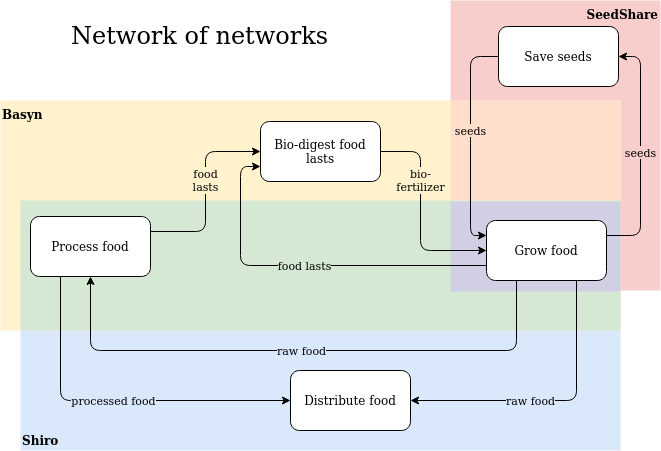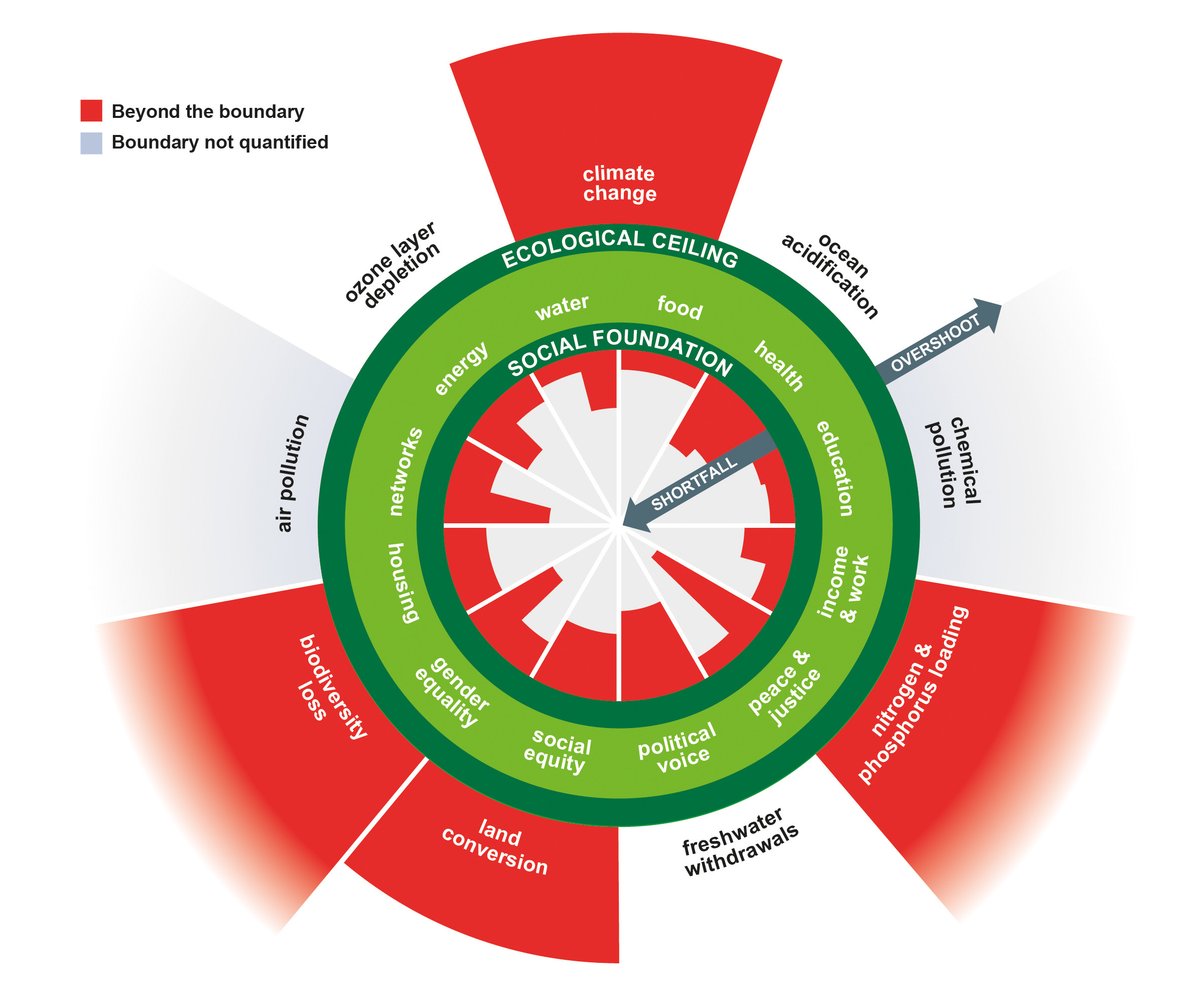- “There is growing consensus that capitalism is unsustainable and that something simply must change. It is not hard to point to the various reasons for this critique; from growing fears about the status quo’s inability to tackle climate change, to rising inequality on a global level, to the continual failure to achieve acceptable living standards in the Global South, and to the pressure of an insurmountable wealth gap between the elites and the working classes in advanced economies.
- “However, actually achieving a change to the status quo requires dismantling entrenched interests and taking on a system apt at perpetuating itself. Since regulatory and policy approaches have largely failed to achieve this change, we contend that it is time to identify, research, and implement alternative methods and strategies that may better drive systemic change.” *Social Entrepreneurship & Management Masters Thesis, Danny Nielsen and Olivia Grazzini
Several of the strategies in experiments around the world involve economic networks of one kind or another, for example:
- Distributed Cooperative Organizations (DisCOs) as described in that thesis or in their manifesto: http://disco.coop/2019/11/you-say-decentralized-i-say-potato-the-disco-manifesto-is-live-and-ready-to-download/,
- multi-stakeholder cooperatives like http://www.fifthseasoncoop.com/ ,
- mutual aid networks: https://www.mutualaidnetwork.org/ ,
- mutual credit networks like https://opencredit.network/
- open value networks like https://www.sensorica.co/ ,
- or even commercial supply chains (see The People’s Republic of Walmart below).
And here’s another economic network planning to form in the US pacific northwest. Basyn creates and operated biodigestors that transform food wastes into fertilizer. SeedShare saves and shares seeds. Farmers grow food using the fertilizer and send their own wastes back to Basyn. Shiro distributes and processes food, and sends their food wastes back to Basyn, too. Basyn, SeedShare, and Shiro are networks themselves, and then internetworked by Basyn.

The stated logic of capitalism is the “free market”, with it’s fabled “invisible hand”, and it’s less-fabled “invisible foot” which kicks the “externalities” under the table.
Economic networks shelter themselves from the “free market” except at their edges. Internally, their relations are usually cooperative, not adversarial.
That is also true of many commercial supply chains: they rely on negotiated long-term relationships. They do not go out on the free market to get their components, relying on “price signals”. For lots of details about how that works, read the book “The People’s Republic of Walmart”, or this review: http://inthesetimes.com/article/21773/socialism-leigh-phillips-michal-rozworski-peoples-republic-of-walmart
Non-capitalist rules, or, cooperators rule
Internally to an economic network, the participants can set up any rules of engagement that they can agree on.
So, for example, the multiple stakeholders of the Fifth Season cooperative include regional farmers, institutions like hospitals and schools that serve food, and the workers who distribute the food and administer the network. During the formation of the cooperative, all of the initial stakeholders met in a big room, several times, and discussed what prices would be fair for both the farmers and the institutions, and what would be fair wages for the workers. Took a few rounds of negotiation, but they have now been up and running successfully for more than 10 years.
Or Sensorica, where they distribute income to whoever contributed in any way to the project that brought in the income, using a democratically-decided “value equation”. More details here: https://speakerdeck.com/mikorizal/10-nrp-value-equation-concepts-and-tutorial
The DiSCOs also want to use democratic value equations for what they call “contributive accounting”. More details here: https://disco.coop/governance-model/#Contribution_Tracking.
The history of such networks is that if any of the participants feel like they are being treated unfairly, they will drop out, and if enough of them drop out, the network will split and/or collapse. Which has happened to more than one network. See also https://www.academia.edu/10252910/The_uneasy_transition_from_supply_chains_to_ecosystems_The_value-creation_value-capture_dilemma
All of that cooperative logic is the opposite of the logic of capitalism, where each economic agent is on their own, competing with all the other players in a big winner-take-most game.
Economic network operating systems
We ( http://mikorizal.org/ ), along with several other contributors, have been working on infrastructure for economic networks, including a prototype system we developed in 2012 in collaboration with Sensorica that we called NRP for Network Resource Planning, which you can read about here: https://speakerdeck.com/mikorizal/1-nrp-overview
That software has been forked several times, including for a high school fablab network in Milwaukee Wisconsin, called https://learndeep.org/ (yet another economic network).
From that experience and many other inputs, the https://valueflo.ws/ vocabulary and protocols were developed to allow distributed economic networks of all kinds to coordinate with each other.
Value Flows has given rise to several new software projects using distributed technologies. 3.5 of them are described here: http://mikorizal.org/futures.html
Bootstrapping
This article https://docs.google.com/document/d/1NwEcKf-AlD3WlvHFNCmGmDKp9NerPeAaHeTHTrdF628/edit?usp=sharing surveys a few proposals for better economic systems, and argues that a new economic system in North America or Europe will probably not result from a revolution as in the Soviet Union, China, or Cuba. We don’t have the forces at this stage, for any definition of we, and even if we did, do we really know how to create a better system at that scale, as of now or the near future?
So maybe a better way to go is to bootstrap new-economy experiments as economic networks, work out the relationships and logic until some good models emerge, and then internetwork them into more of a full economic system. Remains to be seen if these experimental networks need to be local, based on the ground, or if they can just be digital, on the internet. Both are happening, but can a purely digital network, even if it facilitates some transfers of physical goods, provide for enough of a whole economy to provide any useful lessons?
Bootstrapping with Doughnuts
Kate Raworth of Doughnut Economics has started an Action Lab to put the ideas into practice in cities.
Here’s the Doughnut:

It includes the ecosystem limits as well as the provisioning of human needs into the same model, and so is a good starting place for bootstrapping a different economic system.
The Action Lab aims to bootstrap the Doughnut ideas in cities.
The Doughnut model “is silent on the possible pathways for getting there, and so the doughnut acts as a convening space for debating alternative pathways forward.”
Regardless, the cities who try to implement the Doughnut will need to create one or more economic networks in the middle.
Why economic networks?
Why do I think they are important enough to write a series of blog posts about?
I think they are an opening, an aperture, an entry point, to a better economic system.
People can experiment with different economic relationships without needing to take on the whole global capitalist system all at once.
People can figure out which economic relationships work and which don’t. Which might be better than either a sudden revolution or collapse of civilization and then figuring out what to do. Or taking some blueprint that somebody wrote up without anybody ever trying it. Or looking at partly failed attempts from the past that nobody really wants to repeat.
But there’s a catch…
…of course. Your economic network with better rules will meet the surrounding capitalist system on every edge. You will not be able to get all of your needs met within the network and so will need to buy them in capitalist markets. So you will still need money, the coin o’ the realm.
And you may need to pay taxes, and be hemmed in by laws that assume capitalist relationships.
And all of the people will have been trained in capitalist ideology, that is, me first.
I’ll write about still needing money in another post. But next, economic networks in chocolate…
Economic networks with chocolate
Mike Hales keeps trying to get me to check out Robin Murray.
So here he is, talking about economic networks of chocolate farmers, processors, distributors, etc..
This is in the context of Fair Trade, which describes itself as “a global movement made up of a diverse network of producers, companies, consumers, advocates, and organizations putting people and planet first.”
In other words, not like capitalism…
Capitalist economy vs cooperative economic network
Unless network members can meet all their need in-network: * some members, and/or the network collectively, will need to make money in the capitalist economy. – some members could get jobs – the network collectively could sell goods and/or services – the network could get grants – etc.
Capitalist ideology and relations will invade the network, for example: * network members will compete with each other when they should cooperate [^1]; * factions will form to compete more successfully; * all of this competition will be amplified and multiplied if the network uses the coin o’ the realm internally; * network members will call upon outside capitalist allies to compete and take over more network resources; * in order to earn money, especially by getting grants, the network may need to compete with other cooperative networks rather than organizing a larger cooperative economy.
We have seen all of these diseases happen in cooperative economic networks. * One member of one network organized a faction promising venture capital which split the network but the venture capital never came. * The leaders of another network applied for venture capital but the venture capitalists told them to change the cooperative rules, which they did, whereupon the network collapsed from loss of members, and the venture capital never came. * One network collapsed because one of the leaders favored his own business interests too much for the other members, many of whom left, and soon there were none. * Another network failed to get started because of disputes over money.
But we also see networks that continue for years, and some of the networks that split, continued after reorganizing.
SO it’s hard but not hopeless.
What is the solution to all of those problems? I think, but cannot yet prove, that building bigger networks that can provision more of their members’ needs would help a lot. We’ll see, some people are working on that…
[^1]: Yeah, ok, not all competition is bad. Some competition is fun. I don’t know if I can strictly define the diffs…

